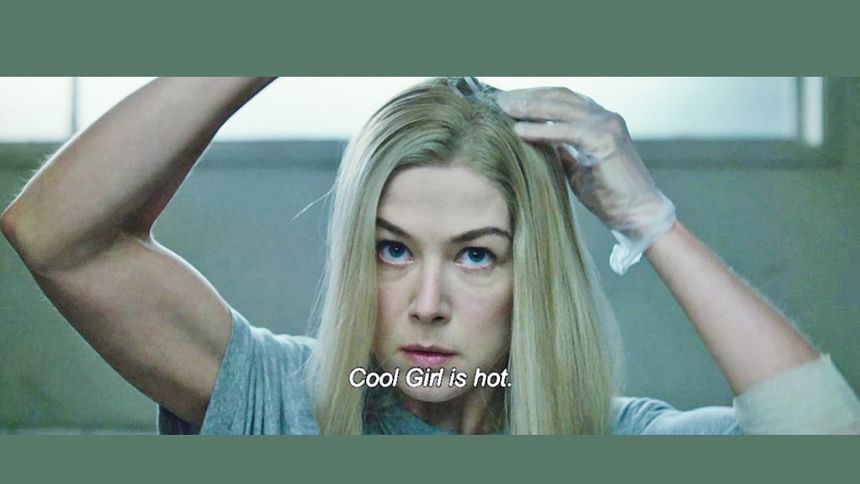“I’m a cool girl”: An epidemic, explained

As a young woman, I am constantly exposed to tropes in television and media who model the "cool girl" behaviour. If you haven't heard about The Girl Next Door, you are surely familiar with the iconic "I'm a cool girl" quote from Gone Girl.
The whole idea behind being the cool girl is to strip yourself down from everything that makes you a woman; whether that be your own femininity or your preference to be friends with other women. A "cool" girl is hot without trying, chill without being a pushover, and has a dark sense of humour that "other girls" just don't understand. Because obviously, the coexistence of all these traits is unimaginable.
At a glance this may seem innocent, and even funny, until we actually dig into the root of where this phenomenon stems from. "You're so funny for a girl" – is a phrase I am all too familiar with. And I, like you, had considered this to be a huge compliment for the longest time without realising the backhandedness of it. The reason is that I belong to a patriarchal society where men's preferences are preferred and women's likes, fantasies, and interests are shunned.
Traditional gender roles suggest that women are to look good, dress well, and speak softly. However, it is ironic that the originators of these very gender roles have labelled one set to be boring and uptight and the other to be fun and edgy. So, for many women, the only way to feel validated and empowered is through compliments which would be a result of them rejecting all of the stereotypical girly traits, better known as, practicing internalised misogyny.
As a society, we are guilty of always creating dichotomies based on extreme traits and framing them in boxes. We then go on to try and fit every person we come across into one of those boxes without realising that most of us are, in fact, laying somewhere in between. The cognitive dissonance of wanting so badly to fit in and at the same time stand out, leads us to rebelling over things that, in an ideal world, should not matter at all. Being funny and being feminine are not mutually exclusive but the patriarchal norms imposed upon us often make us feel that they are.
The question is whether our need is to be different from other girls or be different from other people in general. We often end up identifying with traits which we believe are perceived by others as unique or quirky. Our need for social validation is so deep rooted that it ends up clouding our vision as to what really matters — that people are allowed to be themselves.
Sharose Islam is currently seeking rehabilitation in order to recover from her near lethal over dosage of milo. In order to set up an MAA meeting, reach out at facebook.com/sharose.islam

 For all latest news, follow The Daily Star's Google News channel.
For all latest news, follow The Daily Star's Google News channel. 



Comments